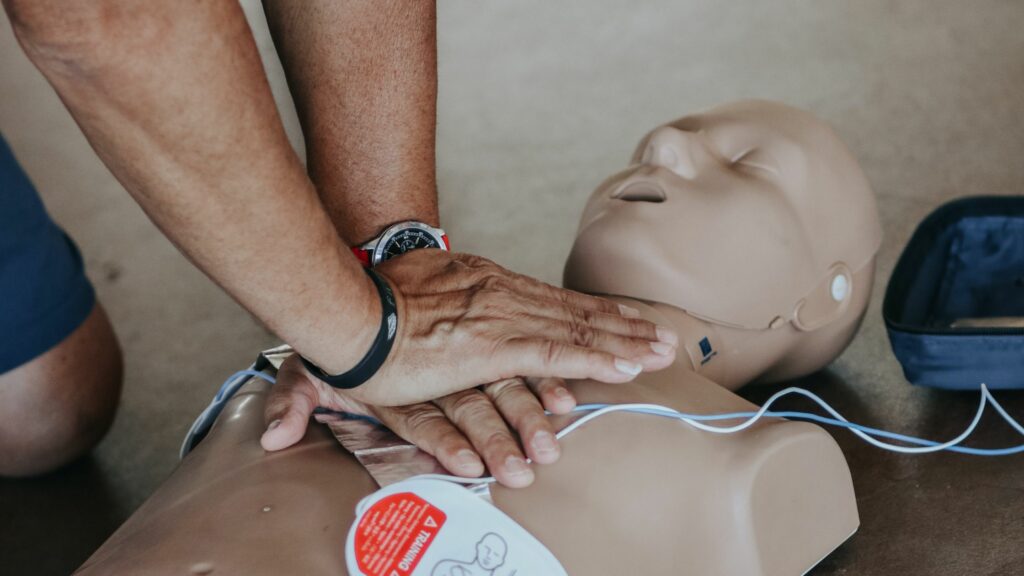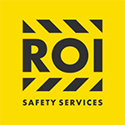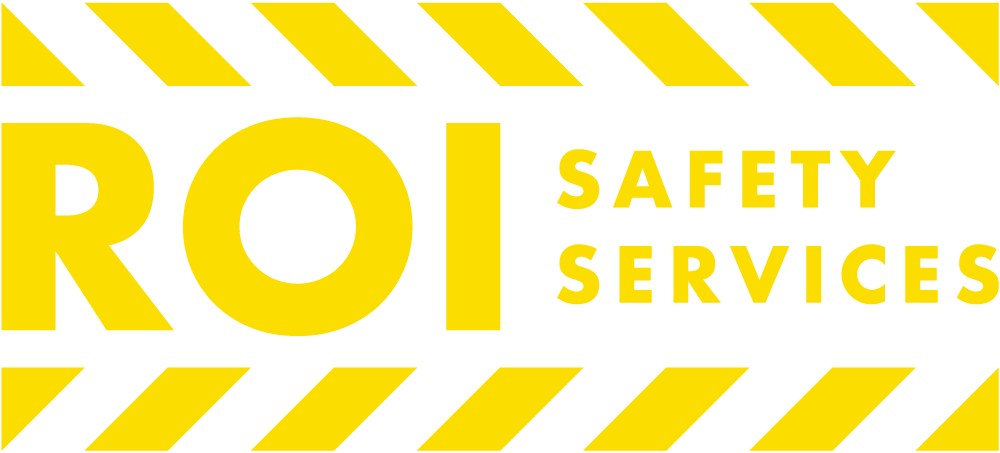
Types of CPR Certification
CPR (Cardiopulmonary resuscitation) training is not the only emergency CPR type course available these days. There are numerous training courses for medical workers, nurses, doctors, medical students, paramedics, and firefighters. You can enroll in various certifications and training classes to fit your specific needs and qualifications. Here at ROI Safety Services, we offer a first aid and CPR class.
Following CPR certification, medical field training methods include NRP, ACLS, and PALS. Here is a rundown of various types of CPR training.
ACLS CERTIFICATE
ACLS is the acronym for Advanced Cardiovascular Life Support. Cardiopulmonary resuscitation training is a part of an Advanced CLS protocol. It covers all aspects a medical worker should do when facing an emergency.
Advanced Cardiovascular Life Support training is intended for healthcare professionals who manage emergencies that affect adults. This is all healthcare providers, including nurses, doctors, paramedics, and respiratory therapists. Learners must be able to interpret ECG and know the appropriate medication dosages for patients.
Subjects to discuss:
- How a healthcare professional can recognize and manage cardiac and respiratory arrest
- Management of the airway
- Pharmacology definitions and terms
- Review of the basic life support
- How do you treat stroke and acute coronary syndromes
- What can you contribute to a resuscitation group as an individual leader as well as a member
The advantages of Advanced Cardiovascular Life Support certification are:
- The Teachers: Students can learn in-depth about the best ways to support a cardiac arrest and other situations requiring immediate attention and basic first aid.
- Classroom Lessons: Advanced Cardiovascular Life Support certification courses need the completion of hands-on courses to ensure that every student is adequately trained to provide lifesaving assistance in times of need.
- Dynamic Learning: Trainees are motivated to engage in the class to attain the knowledge required to succeed in an emergency situation.
Most of the time, one can finish an Advanced Cardiovascular Life Support course in a day at a training center. It typically takes about 12 hours to complete an initial ACLS certification course. On the other hand, it can take six hours to complete renewal training.
After completing the ACLS certification course, students will be issued an ACLS certification card valid for up to two years. The certificate is given to students the day they complete the course.
A skilled healthcare provider teaches each ACLS training. The students will get guidance from experienced trainers with the skill to teach all there is to know about ACLS.
PALS CERTIFICATE
Training for PALS is perfect for healthcare professionals who are likely to experience children’s emergencies. The training covers a wide range of topics around emergency medical services, such as:
- How do you implement a scientific technique for the assessment of children
- The Significance of having a well-planned treatment of respiratory emergencies in children
- Access to Vascular
- Management of the airway
- PALS Definitions and terms in pharmacology
- Studying different simulations and cases
Training for PALS has many advantages that include:
- High-level training: The course focuses on the issues associated with pediatric administration during critical situations. The training instructs students on providing vital assistance to children and infants.
- Real-world scenario lessons: During PALS classes, students are exposed to various real-world situations involving children and infants.
- Complete Understanding: A class at PALS is taught by highly skilled and experienced trainers who can provide vast insights into the spectrum of emergency issues for adolescents.
A person can complete the PALS course within between one and two days. A PALS initial class takes around twelve hours to complete the course, while a renewal course will take about six hours to complete. In addition, every trainee will acquire a PALS certification two years after completing a PALS course.
NRP CERTIFICATE
An NRP course is suited for health professionals working in the birth of infants. Health professionals who can gain from NRP training include:
- NICU Physicians
- Nurses in Neonate Intensive Care Unit(NICU)
- Respiratory Therapists
- Delivery and labor nurses
Areas to discuss:
- The familiarization and application of equipment used to resuscitate neonates
- Evaluation of infants
- Positive pressure ventilation
- How to do intubation and neonatal CPR
- Administration and dosing of medications
- The application of knowledge in urgent situations (neonatal mega code)
The advantages of taking NRP training:
- Extensive topics: The NRP course comprises three parts: an online module, which provides simulations, hands-on practice of skills in person with the trainer, and an assessment of skills using an instructor. It is a way for students to increase the confidence of their peers by engaging in class and working on the skills they’ll require in emergencies.
- Expert Support: The NRP course is led by a highly-skilled trainer in the NICU willing to guide students to become essential participants in real-world scenarios.
NRP certificate is a requirement for all healthcare workers in NICU or labor and delivery. The certificate will be valid for up to two years. Additionally, once a student graduates from an NRP course and passes the test, they can get the certification within that same day.
BLS CARDIOPULMONARY RESUSCITATION TRAINING
Basic Life Support (BLS) to healthcare providers is a prerequisite for all advanced classes discussed above.
The advantages of BLS training are:
- Unique Learning: Many BLS classes are taught by instructors working in the medical or healthcare field, offering students an educational and stimulating CPR training experience.
- Flexibility: A variety of BLS training courses are available in towns and cities across the country so that anyone can be taught the fundamentals of CPR whenever they like.
A BLS training regiment is strongly recommended to anyone working in the health field. This includes nurses, doctors, dentists, EMTs, paramedics, medical assistants, dental assistants, firefighters, and many more. Anyone who works in a professional capacity and who interacts with patients should take the BLS course.
After completing your BLS course, you’ll be issued a certification card that lasts over two years. It is crucial for those who have been certified to stay up-to-date with developments regarding CPR and other courses. The latest developments and modifications in the field can occur. Having a fair approach to certification is crucial.
Being certified in PALS, BLS, ACLS, and more is as simple as finding a place convenient for the person and staying determined to follow the course. The majority of locations provide honest feedback as well as a welcoming environment. Additionally, they will be highly profession
ENROLL IN THE ROI SAFETY SERVICES CPR AND FIRST AID TRAINING NOW!
ROI Safety Services offers premier first aid and CPR training instruction in California. We have highly skilled trainers who lead our classes. We create a relaxed and safe setting for students to learn life-saving skills.
Explore the wide range of OSHA training courses offered by ROI Safety Services. You’ll be grateful you took the time to do it. You can select from a myriad of advanced and introductory training programs that will help you develop the required knowledge to offer lifesaving care in the workplace.

